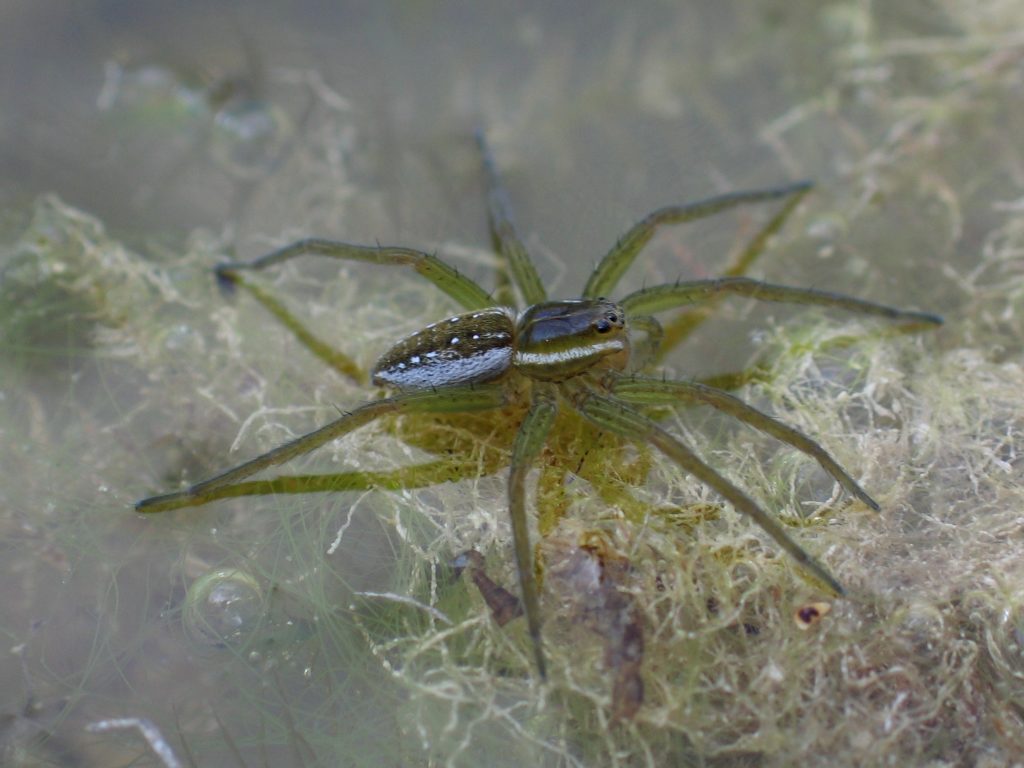Spiders from five different families prey on small fish in the wild, according to a systematic review published June 18, 2014 in the open-access journal PLOS ONE by Martin Nyffeler from University of Basel, Switzerland, and Bradley Pusey from The University of Western Australia.
Spiders are known to prey on insects, but in recent years, researchers have become increasingly aware that spiders are not exclusively insectivorous, and that certain larger-sized species might supplement their insect diet by occasionally catching small vertebrate prey. Semi-aquatic spiders in particular, some of which swim, dive, and walk on the water’s surface, are equipped with powerful neurotoxins and enzymes that help them kill and digest fish even larger than they are.
In this study, the researchers report that spiders preying on fish occurs on all continents except Antarctica, with most catches occurring in a warmer climate, especially in the North American Florida wetlands and neighboring regions. The authors found that other published evidence indicates that as many as eight spider families contain fish-catching species, which is a larger amount of diversity than previously known.
Are you the author of this article? We had a site crash back in 2016 and lost some author attributions. We promise this is not a snub! Please email us and let us know that this is your post. Thanks and apologies!


